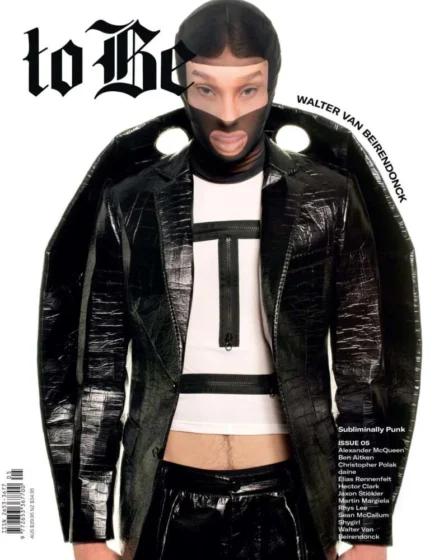In the swirling vortex of modern discourse, where does the line truly reside between the right to speak and the cost of silence? The echoes of free speech often ring hollow, particularly when amplified by those who selectively champion it while simultaneously attempting to muzzle dissent.
The specter of selective censorship, a tactic as old as power itself, continues to haunt the public square. This isn't a new phenomenon, of course. Jon Stewart, in his return to the Daily Show, aptly dissects this complex dance of rhetoric and reality. He skewers the hypocrisy of those who wrap themselves in the flag of free speech while simultaneously wielding the tools of suppression. The focus is squarely on the political machinations of the day, with Stewart, as always, utilizing satire to lay bare the inconsistencies and power grabs that often masquerade as principled stands.
The resurgence of Stewart's commentary comes at a pivotal moment, when the very definition of free expression is under siege. The battleground isn't just in the halls of government, but also in the digital realms, where algorithms and echo chambers shape the flow of information. Stewart's return serves as a potent reminder of the vital role that critical analysis, delivered with wit and intelligence, plays in maintaining a healthy democracy.
The crux of the matter, as Stewart so keenly observes, lies in the inherent contradiction. Those who loudly proclaim their devotion to free speech often demonstrate a remarkable intolerance for views that diverge from their own. This selective application of principle, where certain voices are amplified while others are silenced, is the very antithesis of a truly free society. It’s a game of smoke and mirrors, designed to control the narrative and stifle any challenge to the established order.
The tools of censorship have evolved over time, but the goal remains the same: to control the flow of information and, by extension, to control the minds of the populace. From outright bans to subtle forms of pressure and intimidation, the methods may vary, but the underlying intent is consistent. This can be a threat to the media, the right to a fair judicial process, the right to equal protection under the law and many other essential components of a free and open society.
The debate surrounding free speech is not a simple one. It’s a complex tapestry woven with threads of history, law, and ethics. There are difficult questions to be grappled with: What is the responsibility of platforms that host speech? When does speech cross the line into incitement or harm? How do we balance the right to express ourselves with the need to protect vulnerable groups? These questions require constant scrutiny and critical thinking. In the digital age, the velocity and volume of information have increased exponentially, and it is more important than ever to remain vigilant and to defend the principles of a society that upholds free speech.
Beyond the world of political satire and the halls of power, the concept of free speech finds itself constantly re-evaluated. The rise of digital platforms has added a new layer of complexity to the conversation. The algorithms that govern these platforms can have a profound impact on what information we see and hear, raising questions about bias, censorship, and the very nature of public discourse.
In the midst of all this, it's important to remember that the right to free speech is not absolute. There are certain types of speech that are not protected, such as incitement to violence, defamation, and threats. The boundaries of free speech are always being debated, and it’s essential to engage in these discussions in a thoughtful and responsible manner.
The Daily Show episode, and Stewart's return in general, serve as a wake-up call. They highlight the importance of critical thinking, media literacy, and the need to hold those in power accountable. In a world flooded with information, the ability to discern truth from falsehood is more crucial than ever. Stewart's approach, blending humor with sharp analysis, provides a template for engaging with the complexities of modern society.
The show's success also underscores the enduring power of satire. By using humor as a tool, Stewart can cut through the noise and get straight to the heart of the matter. He exposes the absurdities of power, holding up a mirror to society and forcing us to confront our own complicity in the systems we criticize. In a world that often feels overwhelming and confusing, this approach can be a lifeline. The ability to laugh at ourselves, and at the follies of those in charge, is a crucial step in the fight for a more just and equitable society.
In addition to the political commentary, there are also other sources of information, such as videos from the official channels of The Daily Show on platforms like YouTube, Facebook, and Instagram, and on the streaming service, Paramount+. The content available there provides a look into the production of the program. This behind-the-scenes access can give insights into the creative process and the people behind the cameras, offering a deeper understanding of the message.
The Noodle Magazine references, scattered throughout the search results, offer a different perspective. One mentions a niche-in-a-niche magazine catering to Gay Asian Americans. This highlights the importance of representation and visibility for underrepresented communities. In a world where media often reflects the dominant culture, creating space for marginalized voices is essential. These platforms serve to empower and uplift those who have been historically excluded from mainstream discourse. Publications like these are vital in shaping a more inclusive society.
Another reference is to Noodle Magazine web elements from GraphicRiver. This underlines the commercial aspect of media, the constant need to create new content to keep things moving. In today's media landscape, it's important to understand the business side of content creation. Understanding how money flows through the media industry can help us become more informed consumers and make more responsible choices.
Then there are technical issues with NoodleMagazine, such as the Unable To Extract Player Path error. This emphasizes the technical aspect of media consumption. The digital age has brought about new challenges, such as the spread of misinformation and the struggle to maintain reliable content. These challenges make it more important than ever to cultivate media literacy and to critically analyze the information we encounter.
The mention of the Nick Jr Family Noodle Magazine adds a child-friendly context to the whole picture. This could show how the media reaches different demographics. Creating age-appropriate content that helps children to explore their world while they grow is part of the responsibility of media creators.
The story of Jon Stewart's return is, above all, a story about the power of words and the importance of critical thinking. It's a reminder that freedom of speech is not a given, but a responsibility, and that it requires constant vigilance and defense. It also highlights the necessity of diverse voices and perspectives in the media, and how they shape the broader culture. In a world where truth is often contested, the ability to discern and speak it is a superpower.
The intersection of these diverse media examples underscores the wide range of information sources available to the public. The internet is a place where news, opinions, and entertainment are all available to be shared. As individuals, we must learn to navigate this complex environment, to become critical consumers of information, and to protect the values of free speech and open discourse.
| Personal Information | Details |
|---|---|
| Full Name | Jonathan Stuart Leibowitz (professionally known as Jon Stewart) |
| Date of Birth | November 28, 1962 |
| Birthplace | New York City, New York, U.S. |
| Nationality | American |
| Spouse | Tracey McShane (married 2000) |
| Children | 2 |
| Education | The College of William & Mary |
| Career Information | Details |
|---|---|
| Known For | Hosting The Daily Show |
| Occupation | Comedian, Writer, Producer, Political Commentator, Television Host |
| Years Active | 1986–present |
| Notable Works | The Daily Show, The Colbert Report, Irresistible, The Problem with Jon Stewart |
| Professional Information | Details |
|---|---|
| Awards | 24 Primetime Emmy Awards, 2 Peabody Awards |
| Political Views | Generally leans towards progressive viewpoints, critical of both Republican and Democratic parties |
| Style | Satirical, observational, often focuses on political and media criticism |
| Impact | Influential figure in political satire; contributed to public discourse on political and social issues |
| Organizations | Supported various charities and organizations |
Reference: Wikipedia



